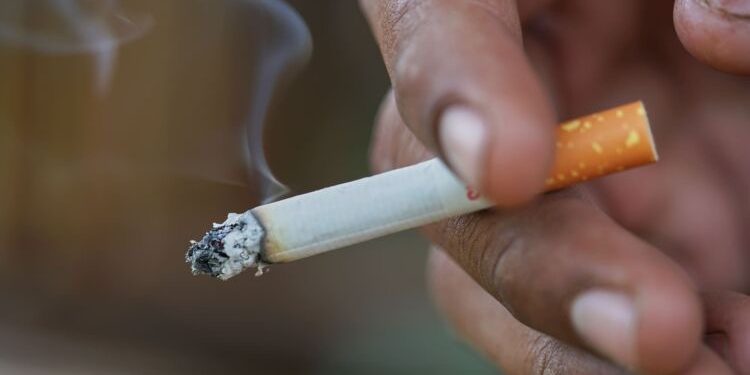By Tina Chinyere – Portharcourt
Tobacco control advocates in Nigeria have raised alarm over what they described as a coordinated campaign by foreign and local groups to introduce nicotine-based products to Nigerian students under the guise of harm reduction education.
The Nigerian Tobacco Control Alliance (NTCA), Corporate Accountability and Public Participation Africa (CAPPA), and Gatefield, In a joint statement, called on the Federal Government, health authorities, and relevant agencies to act swiftly against the covert marketing of nicotine pouches, vapes, and heated tobacco products.
The organisations warned that these efforts, allegedly led by local industry fronts and a group from Sweden, could undermine years of progress in tobacco control and public health.
“This is happening at a time when at least 43 countries have banned nicotine vaping products and 26 others have prohibited heated tobacco products due to health risks and unethical marketing. Nigeria cannot become a dumping ground for these rejected products,” the groups said.
They cited a recent event in Abuja organised by a self-styled “harm reduction organisation from Sweden, describing it as a calculated move to derail the full implementation of Nigeria’s tobacco control laws and worsen the nation’s growing non-communicable disease (NCD) burden.
According to reports, the Swedish group urged Nigeria to adopt a “localised harm reduction strategy” modelled after its “Quit Like Sweden” campaign, while simultaneously promoting nicotine products as “safer alternatives.”
The statement condemned the approach as a deceptive rebranding of tobacco marketing, warning that the industry was exploiting harm-reduction language to recruit a new generation of nicotine users.
CAPPA Executive Director, Akinbode Oluwafem, dismissed the claims of safety, insisting that there is no safe level of nicotine.
“These groups are promoting nicotine pouches, vapes, and heated tobacco devices as harm-reducing or safer alternatives and that is a dangerous lie that fuels a youth addiction crisis right here at home,” Oluwafemi said.
He cited World Health Organization (WHO) data indicating that about 15 million children aged 13 to 15 are already addicted to e-cigarettes, with children nine times more likely than adults to vape.
“This so-called ‘smoke-free future’ the industry promises only ensures a steady pipeline of young addicts to replace those killed or harmed by tobacco and nicotine products,” he added.
NTCA Alliance Coordinator, Olawale Makanjuola, stressed that Nigeria already has a strong legal framework to curb nicotine addiction if properly enforced.
“We have the tools strong taxation, advertising bans, plain packaging, strict age verification, and cessation support. What we lack is political will.
“These industry-backed programmes pretend not to target youths, yet they run ‘educational’ campaigns in schools that normalise nicotine use. They are Trojan horses disguised as public health initiatives.”
Also speaking, Omei Bongos-Ikwue, Health Communications, Policy and Advocacy Specialist at Gatefield, urged the government to strengthen protections for young people.
“The tobacco industry is not trying to end nicotine use; it is simply repackaging addiction to attract youth. As a signatory to the Framework Convention on Tobacco Control (FCTC), Nigeria must shield public health policies from industry interference and focus on prevention,” she said
The groups emphasised that comprehensive tobacco control policies, not alternative product marketing, have proven globally to reduce smoking rates and prevent addiction.
“Nigeria must stand firm against these deceptive harm-reduction tactics and adopt home-grown solutions that reflect our realities. Our youth do not need new forms of addiction disguised as lifestyle accessories,” the statement concluded.
They also urged parents, guardians, schools, and the public to remain vigilant against the infiltration of nicotine products into everyday spaces, warning that failure to act could plunge the country into a major public health crisis.
















